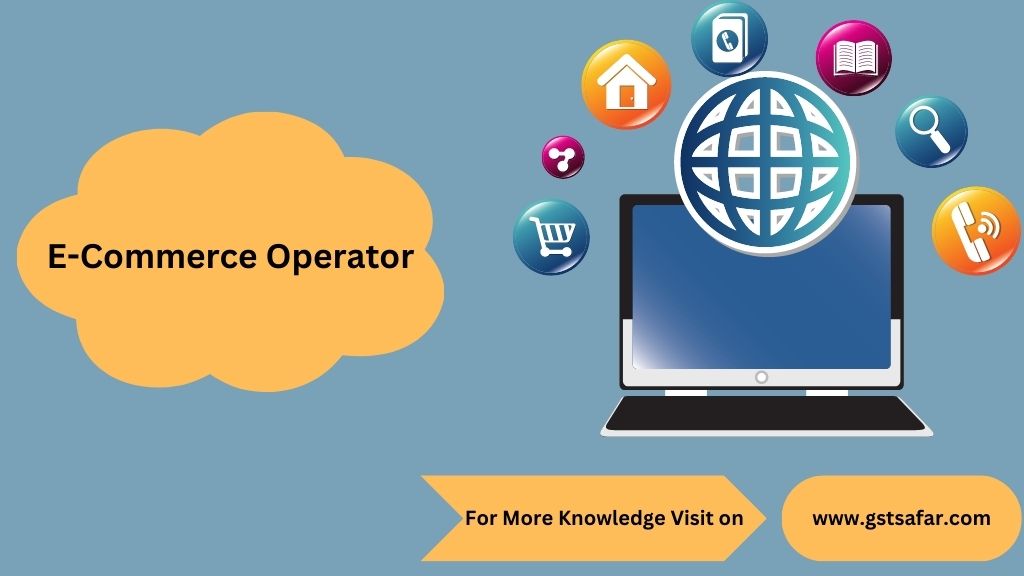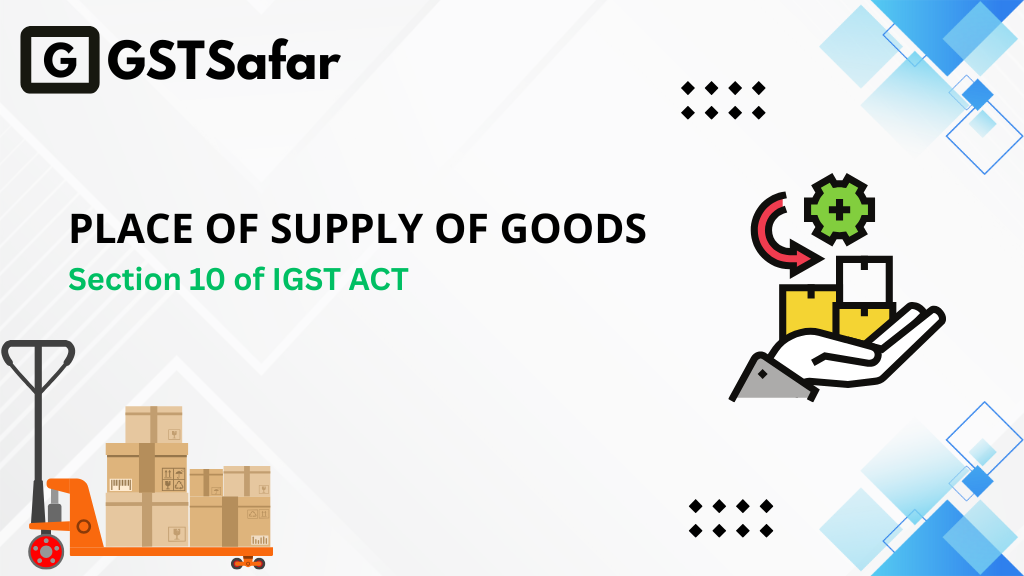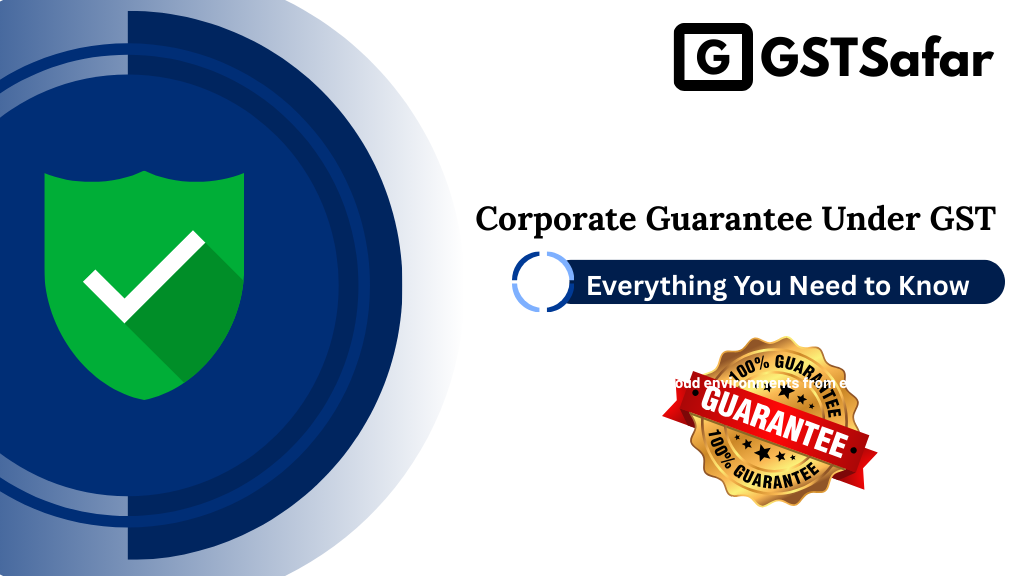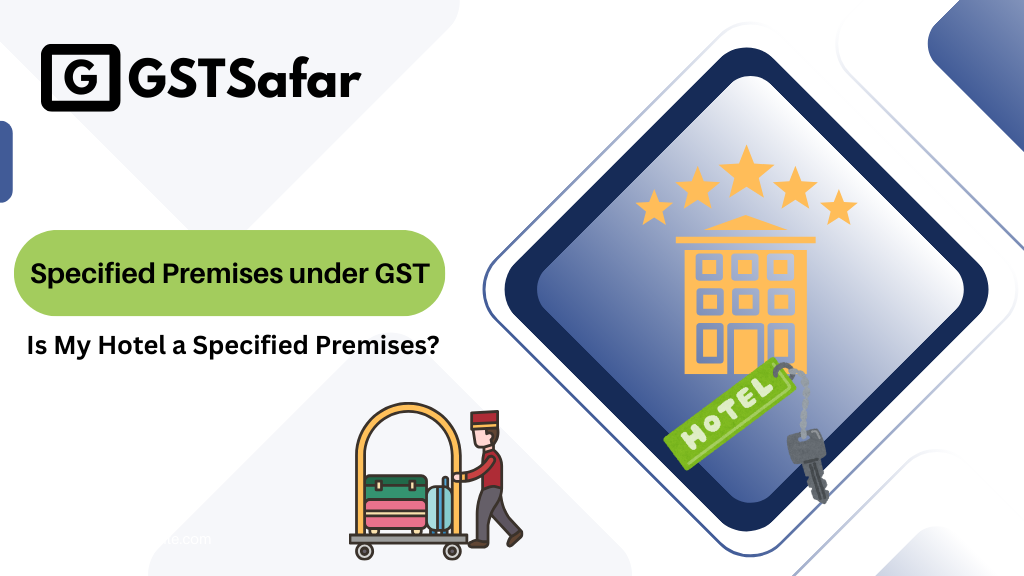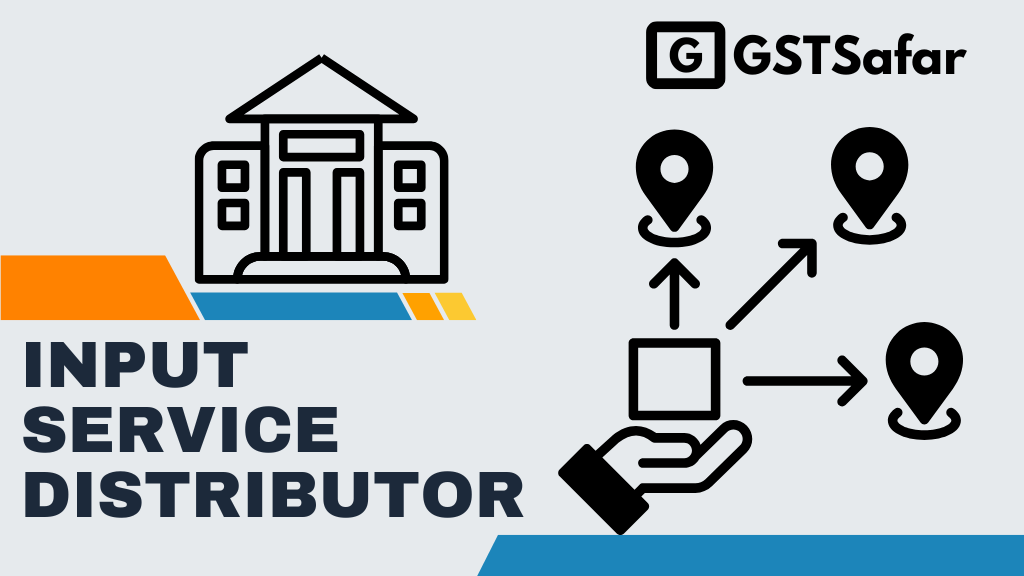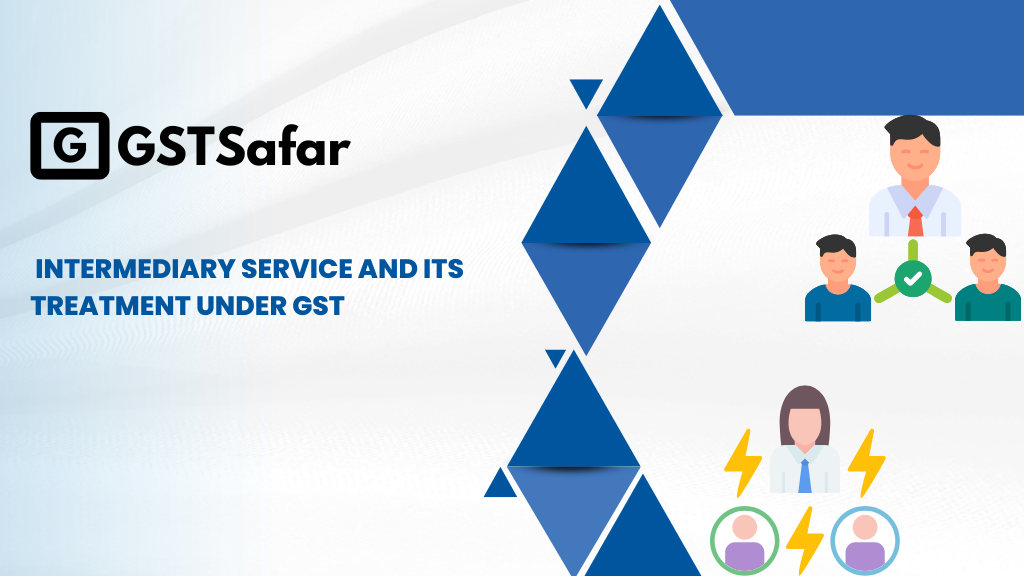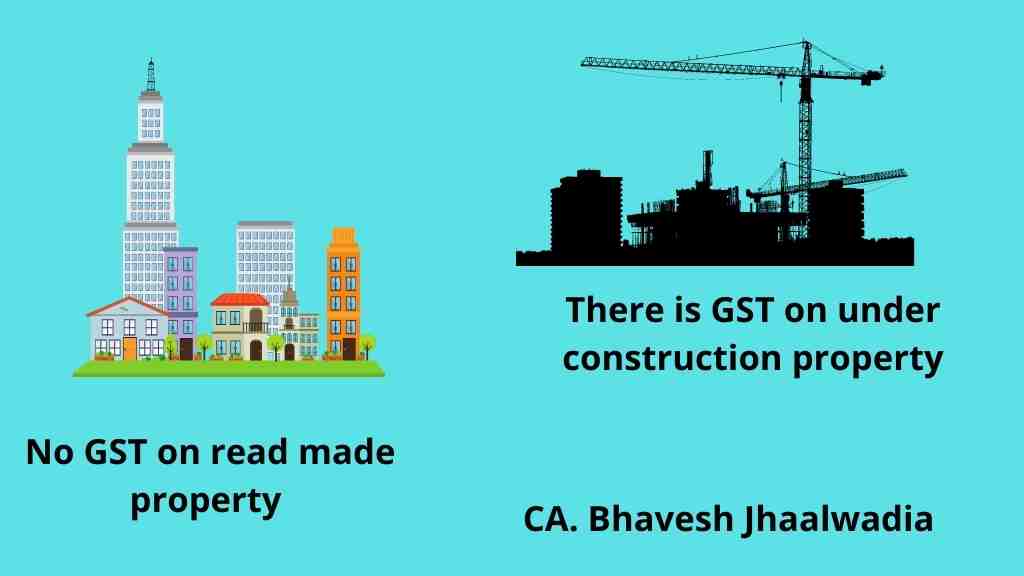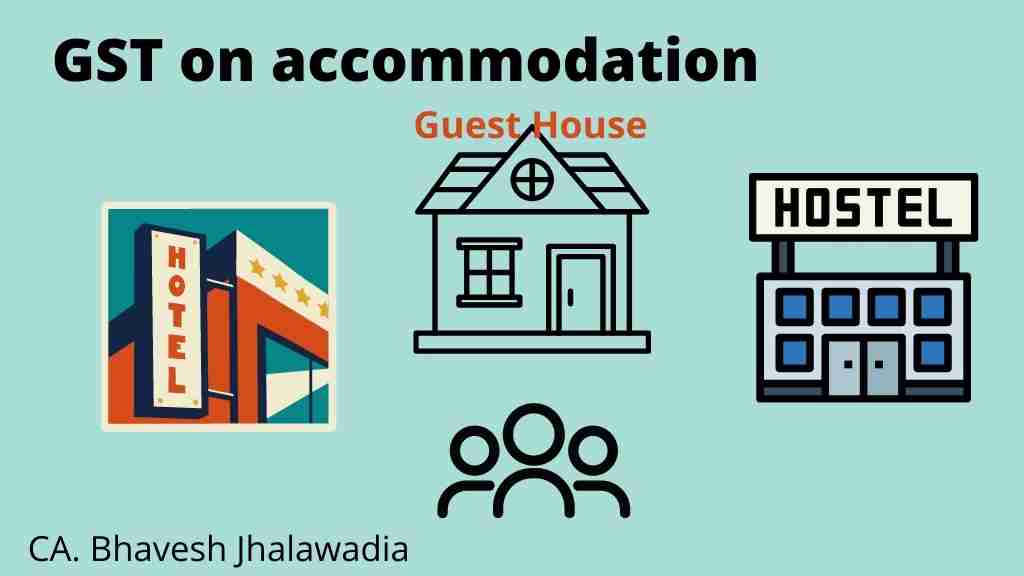What is an e-commerce operator in GST?
Here we discussed gst on electronic commerce operators in which Electronic commerce Operators (ECO) is displays products as well as services which are actually supplied by some other person to the consumer, on their electronic portal. The consumers buy such goods /services through these portals. On placing the order for particular product /service, the actual supplier supplies the selected product/service to the consumer. The Price/ consideration for the product/service is collected by the ECO from the consumer and passed on to the actual supplier after the deduction of commission by the ECO.
Relevant Definitions
Electronic Commerce Means as per Section 2(44) of CGST Act, Supply of goods or services or both including digital products over digital or electronic network.
Electronic Commerce Operator Means as per Section 2(45) of CGST Act, Any person who owns, Operates or manages digital or electronic facility or Platform for E- Commerce.
TCS collection| GST on Electronic Commerce Operator (ECO) 2023
- E Commerce companies selling goods on portal are being made liable to collect 1% Tax Collection at source (TCS) (GST Notification on TCS is 51/2018 Central Tax dated 13-09-2018)
- The rate of TCS is 1% for IGST for Interstate taxable supply & in case of with in state supply the CGST rate is 0.5% & SGST rate is 0.5%.(GST Notification No. 52/2018-Central tax and Notification No.2/2018-Integrated Tax both dated 20-09-2018)
- The amount of TCS deposited by the E-Commerce Operator with the appropriate government will reflected in the electronic cash ledger of the actual registered supplier(on whose account such collection has been made) on the basis of statement filed by the operator in FORM GSTR-8 in terms of Rule 67 of the CGST Rules,2017. The said credit can be used at the time of discharge of tax liability by the actual supplier.
- In case of goods on which GST is not payable, the 1% tax collected by E-commerce will be cost as the actual supplier of such goods will not be able to take credit of this TCS paid by E-commerce companies.
- In Case of Supply of specified services (Like Taxi & Hotel Booking), the E-commerce Operator himself will be liable to pay entire IGST/CGST/SGST on such services of section 9(5) of CGST Act, 2017.
Note – There is no TCS if you are selling your own products through electronic portal
Business Models | GST on Electronic Commerce Operator (ECO) 2023
Business to Consumer (B2C) – These model connects business and Individual customer i.e. End-users
Business to Business (B2B) – These model connects business to their suppliers, distributors and other part of supply chain
Consumer to Consumer (C2C) – In this model Consumers interact with each other like sale of second hand goods
E –Commerce Models |GST on Electronic Commerce Operator (ECO) 2023
Market Place Model – In this Model E–commerce operators does not maintains his own inventory. The goods are supplied directly by participating manufacturer or wholesaler directly to customer. Payment is routed through e-commerce operators who pays to the selling Manufacturer/Wholesaler after deducting their commission. Invoice issued in the name of retailers/wholesalers with their GSTN. E.g. snap deal, Flipkart, Shoppers stop
Aggregator Model – The Aggregator Model operates when e-commerce operator intends to supply goods or services under his brand. The e-commerce operator procures goods from manufacturers and sales under his own invoice .E.g.-Ola & Uber
Inventory Model – The e-commerce operator himself procures and stores the goods then sales them under his own invoice. E.g. Amazon
E Commerce Registration | e-commerce operator under gst registration
1. As Per section 24(x) of the CGST Act,2017 Every electronic commerce operator irrespective of his turnover, is mandatorily required to obtain GSTIN registration .This registration is in addition to and separate from GST registration obtained as normal supplier.
If person supplying services other than supplier of services under section 9(5) of CGST Act,2017 through e-commerce platform are exempted from obtaining compulsory registration provided their aggregate turnover does not exceed 20 lakhs (10 lakhs in case of specified category states) in financial year (GST Notification No.65/2017-Central tax, dated 15-11-2017).
2. If E-commerce operator has suppliers in different states, he is required to obtain registration for TCS in each state. To facilitate obtaining registration he can indicate his head office as place of business, if he does not have place of business in that state .Thus all returns can be filed through HO.
3. If a person is required to collect tax at source in the state or UT where he does not have physical person , he shall mention name of that state in Part-A of application form GST REG-07 and mention name of state or UT where he has principal place of business in Part B in form GST REG-07
4. The proper officer may grant registration after due verification and issue a certificate of registration in Form GST REG-06 within 3 working days from the date of submission of the application.
5.The registration can be cancelled after notice, enquiry and hearing. The cancellation shall be communicated to the said person electronically in the Form GST-REG-08.
is gst mandatory for e commerce operator?| Registration of Supplier who is supplying goods or services through e-commerce operator
Registration of supplier who is supplying goods or services through e-commerce operator is mandatory irrespective of his annual turnover. The supplier cannot supply under composition scheme he must supply the goods and services through normal scheme only.
If in Particular Month, the sales return are more than supplies made, there will be no TCS for that month. However such negative figure will not be carried forwards.
Specified Services |GST on Electronic Commerce Operator (ECO) 2023
The Government may, on the recommendations of the Council, by notification, specify categories of services the tax on intra-State supplies of which shall be paid by the electronic commerce operator if such services are supplied through it, and all the provisions of this Act shall apply to such electronic commerce operator as if he is the supplier liable for paying the tax in relation to the supply of such services:
Provided that where an electronic commerce operator does not have a physical presence in the taxable territory, any person representing such electronic commerce operator for any purpose in the taxable territory shall be liable to pay tax:
Provided further that where an electronic commerce operator does not have a physical presence in the taxable territory and also he does not have a representative in the said territory, such electronic commerce operator shall appoint a person in the taxable territory for the purpose of paying tax and such person shall be liable to pay tax.
Section 9(5) of the CGST Act/Section 5(5) of IGST Act,2017
Specified categories of services the tax on Intra -state supply/ inter state supply of services on which tax shall be paid by E-Commerce Operator (ECO).
(a) Services by ways of transportation of passengers by a radio –taxi, motor cab (not more than 6 passengers), Maxi cab (Capacity > 6 Passengers but less than 12 excluding driver) and motor cycle; (for 01-07-2017 to 31-12-2021 Notification No.17/2017-Central Tax (Rate), dated 28-06-2017)
Services by ways of transportation of passengers by a radio –taxi, motor cab (not more than 6 passengers), Maxi cab (Capacity > 6 Passengers but less than 12 excluding driver) and motor cycle, Omnibus or any other motor vehicle (with Effect from 01-01-2022 Notification No.17/2021-central Tax (Rate)-dated 18-11-2021)
(b) Services by way of providing accommodation in hotels, inns, guest houses, clubs campsites, or other commercial place meant for residential or lodging purposes, except where the person supplying such services through electronic commerce operator is liable for registration under section 22(1) of CGST Act,2017.
(C) Services by way of housekeeping such as plumbing, carpentering etc. except where the person supplying such services through electronic commerce operator is liable for registration under section 22(1) of CGST Act.(With Effect from 22-08-2017 Notification No.23/2017-Central Tax (Rate), dated 22-08-2017)
(d) Supply of restaurant service other than the services supplied by restaurant, eating joints etc located at specified premises.(With effect from 01-01-2022 Notification No.17/2021-Central Tax (Rate), dated 18-11-2021)
Specified Premises Means premises providing hotel accommodation service having declared tariff of any unit of accommodation above seven thousand five hundred rupees per unit per day or equivalent
All the provision of the CGST Act shall apply to such ECO as if he is the supplier liable for paying the tax in relation to the supply of above services.
GST Tax payment
Normally payment of taxes are required to be made by supplier but in case of services supplied through Electronic commerce Operator, the section 9(5) of CGST Act and section 5(5) of IGST Act empowers the government to specify the services on which tax will be payable by Electronic commerce operator and not by supplier.in respect of services not specified but supplied through Electronic commerce operator, tax will be payable by the supplier. In case of supply of goods through Electronic commerce operator, the tax will be payable by supplier.
GST RCM in case of E-Commerce Operator
As per section 9(5), the government is empowered to specify the categories of services by issuing the notification for which tax will be payable by electronic commerce operator although the services will be provided by different persons.
Generally E commerce Operators have entered in to contract with taxi owners who have agreed to provide the services of transportation of passengers. The passengers can directly contact OLA/UBER through Phone or Application. Recipient can directly contact to car driver i.e Taxi owner.
The service of transportation of passenger is provided by car driver and not by E commerce Operator i.e. OLA/UBER.as this service is notified by government under section 9(5) of GST Act, tax will be payable by OLA/Uber and not by the driver who has actually provided the service of transportation of passenger. Section 9(5) of GST Act and 5(5) of IGST Act is only for the purpose of services not for any Goods. Therefore tax will not be payable on supply of goods by ECO. It will only be payable by the supplier of the goods.
Net value of Taxable supply in GST by E-Commerce Operator
As per section 52(1) every ECO shall collect an amount calculated at the rate not exceeding 2% of the net value of taxable supplies. Thus, Eco is required to collect the amount of tax, out of the amount payable or paid to the supplier.
However, in case of collection of tax at source, the responsibility of the person is only to deduct the specified % of the consideration and deposit the tax.
Manner of Calculation of Net value of taxable supplies:
As per sub section of 52(1) the Eco shall collect at such rate not exceeding 2% as may be notified on the net value of taxable supplies made through it where the consideration with respect to such supplies is to be collected by the operator. The net value of taxable supply shall be computed in following manner:
- Eco shall divide the supplier in to 3 parts
- Supplier of goods
- Supplier of services notified under section 9(5) for which Eco is liable to pay tax
- Supplier of other services.
The taxable value of supply in respect of 1 & 3 shall be computed
- Compute the aggregate value of supplies made by each of the supplier
- Reduce the value of return goods or services from the value of supplies computed in (b) above.
Such amount shall be considered as the net value of taxable supply.
Time for filling GSTR-8| GST on Electronic Commerce Operator (ECO) 2023
The ECO shall pay the amount to government within 10 days after the end of the in which the collection is made.
The statement is required to be filled by ECO in the form GSTR-8 electronically through common portal. The details furnished by the operator shall be made available to each of the supplier in Part C of Form GSTR-2A. The form GSTR-8 consist of seven tables.
The return is required to be filed by 10th of following month. The information in return is auto populated in Part C of GSTR-2A of the supplier. The amount can be used by supplier for payment of Tax.
In addition to Monthly statement , section 52(5) also cast obligation on the operator who has collected the amount notified under sub section (1) to furnish annual statement containing details of outward supply of goods or services or both including supplies which are returned by the customers and the amount collected by the ECO. The annual statement is required to be furnished in such form and in such manner as may be prescribed before last day of December following end of the financial year.
Restaurant service through e-commerce operator
E commerce operator be made liable to pay tax on services provided through them including restaurant service with some exceptions. As Per Notification 17/2021 ECO like Zomato, Swiggy are liable to pay tax on the restaurant services. This change is not applicable for restaurant services provided from premises with declared of Rs.7500/-or above per day.
As per Notification 11/2017 ‘Restaurant service means supply, by way of or as part of any service of goods being food or any other article for human consumption or any drink provided by a restaurant eating joint including mess canteen whether for consumption on or away from the premises where such food or any other article for human consumption or drink is supplied’ A restaurant is a place which is in the business of preparing and serving food in the premises or as take away.
- Restaurant located in a premises where declared tariff is not exceeding rs.7500 per day and providing restaurant services.
- Food and beverage sold as a part of restaurant services and which qualifies as restaurant services
- Cloud kitchens providing restaurant services etc.
- Standalone restaurant which are not ice cream parlours or bakeries
As per Notification 17/2021 Specified premises means premises providing hotel accommodation service having declared tariff of any unit of accommodation above 7500 rupees per unit per day or equivalent.
Interest & Penalty on Late Payment of GST
For any delay in filling GSTR-8 return, 200/- per day late fees applicable. Rs.100/- for CGST & Rs. 100/- for SGST. Penalty can not be levied more than of Rs.5000.
Moreover, with the late fee, the taxpayer is also liable to pay an annual interest of 18% on the basis of the amount of unpaid tax.
Clarifications on certain issues regarding ECO
| Sr No | Issue | Clarification |
| 1 | Would ECOs have to still collect TCS in compliance with section 52 of the CGST Act, 2017? | As ‘restaurant service’ has been notified under section 9(5) of the CGST Act, 2017, the ECO shall be liable to pay GST on restaurant services provided, with effect from the 1stJanuary, 2022, through ECO. Accordingly, the ECOs will no longer be required to collect TCS and file GSTR 8 in respect of restaurant services on which it pays tax in terms of section 9(5). On other goods or services supplied through ECO, which are not notified u/s 9(5), ECOs will continue to pay TCS in terms of section 52 of CGST Act, 2017 in the same manner at present. |
| 2 | Would ECOs have to mandatorily take a separate registration w.r.t supply of restaurant service [notified under 9(5)] through them even though they are registered to pay GST on services on their own account? | As ECOs are already registered in accordance with rule 8(in Form GST-REG 01) of the CGST Rules, 2017 (as a supplier of their own goods or services), there would be no mandatory requirement of taking separate registration by ECOs for payment of tax on restaurant service under section 9(5) of the CGST Act, 2017. |
| 3 | Would the ECOs be liable to pay tax on supply of restaurant service made by unregistered business entities? | Yes. ECOs will be liable to pay GST on any restaurant service supplied through them including by an unregistered person. |
| 4 | What would be the aggregate turnover of person supplying ‘restaurant service’ through ECOs? | It is clarified that the aggregate turnover of person supplying restaurant service through ECOs shall be computed as defined in section 2(6) of the CGST Act, 2017 and shall include the aggregate value of supplies made by the restaurant through ECOs. Accordingly, for threshold consideration or any other purpose in the Act, the person providing restaurant service through ECO shall account such services in his aggregate turnover. |
| 5 | Can the supplies of restaurant service made through ECOs be recorded as inward supply of ECOs (liable to reverse charge) in GSTR 3B? | No. ECOs are not the recipient of restaurant service supplied through them. Since these are not input services to ECO, these are not to be reported as inward supply (liable to reverse charge). |
| 6 | Would ECOs be liable to reverse proportional input tax credit on his input goods and services for the reason that input tax credit is not admissible on ‘restaurant service’? | ECOs provide their own services as an electronic platform and an intermediary for which it would acquire inputs/input service on which ECOs avail input tax credit (ITC). The ECO charges commission/fee etc. for the services it provides. The ITC is utilised by ECO for payment of GST on services provided by ECO on its own account (say, to a restaurant). The situation in this regard remains unchanged even after ECO is made liable to pay tax on restaurant service. ECO would be eligible to ITC as before. Accordingly, it is clarified that ECO shall not be required to reverse ITC on account of restaurant services on which it pays GST in terms of section 9(5) of the Act. It may also be noted that on restaurant service, ECO shall pay the entire GST liability in cash (No ITC could be utilized for payment of GST on restaurant service supplied through ECO) |
| 7 | Can ECO utilize its Input Tax Credit to pay tax w.r.t ‘restaurant service’ supplied through the ECO? | No. As stated above, the liability of payment of tax by ECO as per section 9(5) shall be discharged in cash. |
| 8 | Would supply of goods or services other than ‘restaurant service’ through ECOs be taxed at 5% without ITC? | ECO is required to pay GST on services notified under section 9(5), besides the services/other supplies made on his own account. On any supply that is not notified under section 9(5), that is supplied by a person through ECO, the liability to pay GST continues on such supplier and ECO shall continue to pay TCS on such supplies. Thus, present dispensation continues for ECO, on supplies other than restaurant services. On such supplies (other than restaurant services made through ECO) GST will continue to be billed, collected and deposited in the same manner as is being done at present. ECO will deposit TCS on such supplies. |
| 9 | Would ‘restaurant service’ and goods or services other than restaurant service sold by a restaurant to a customer under the same order be billed differently? Who shall be liable for raising invoices in such cases? | Considering that liability to pay GST on supplies other than ‘restaurant service’ through the ECO, Issuance of invoice to customer, continues to lie with the respective suppliers (and ECOs being liable only to collect tax at source (TCS) on such supplies), it is advisable that ECO raises separate bill on restaurant service in such cases where ECO provides other supplies to a customer under the same order |
| 10 | Who will issue invoice in respect of restaurant service supplied through ECO – whether by the restaurant or by the ECO? | The invoice in respect of restaurant service supplied through ECO under section 9(5) will be issued by ECO. |
| 11 | Clarification may be issued as regard reporting of restaurant services, value and tax liability etc. in the GST return. | A number of other services are already notified under section 9(5). In respect of such services, ECO operators are presently paying GST by furnishing details in GSTR 3B. The ECO may, on services notified undersection 9 (5) of the CGST Act,2017, including on restaurant service provided through ECO, may continue to pay GST by furnishing the details in GSTR 3B, reporting them as outward taxable supplies for the time being. Besides, ECO may also, for the time being, furnish the details of such supplies of restaurant services under section 9(5) in Table 7A(1) or Table 4A of GSTR-1, as the case maybe, for accounting purpose. Registered persons supplying restaurant services through ECOs under section 9(5) will report such supplies of restaurant services made through ECOs in Table 8 of GSTR-1 and Table 3.1 (c) of GSTR-3B, for the time being. |
Who is an electronic commerce operator?
Electronic commerce Operators (ECO) displays products as well as services which are actually supplied by some other person to the consumer, on their electronic portal.
Who is e-commerce operator under GST?
swiggy, Zomato, urban clap are the example of e commerce operator under gst
What is the GST return for e-commerce operator?
GSTR-8 is gst return for e commerce operator
Is Amazon an e-commerce operator?
Yes , Amazon is an e-commerce operator as it provides platform to sell the goods and services through it .
